Swallowing gum could create digestion problems

We’ve all heard the rumour that swallowed gum stays in your stomach for seven years. While that isn’t true, there’s a very real risk of creating digestion problems. As swallowed gum builds up in your gut, it can build it so much that it creates a large mass that can become lodged in various digestive valves and obstruct a person’s intestines. This could land you in surgery.
You may prevent heartburn

Research has found that chewing gum for 30 minutes after a meal reduces the level of stomach acids that wriggle their way up your throat, and pushes them back down. The gum also mixes with your saliva, softening the blow of acid that can lead to heartburn and reflux. Better yet, it’s the sugarless bicarbonate gum that gives you the best chance of shutting out heartburn!
It can alleviate dry mouth
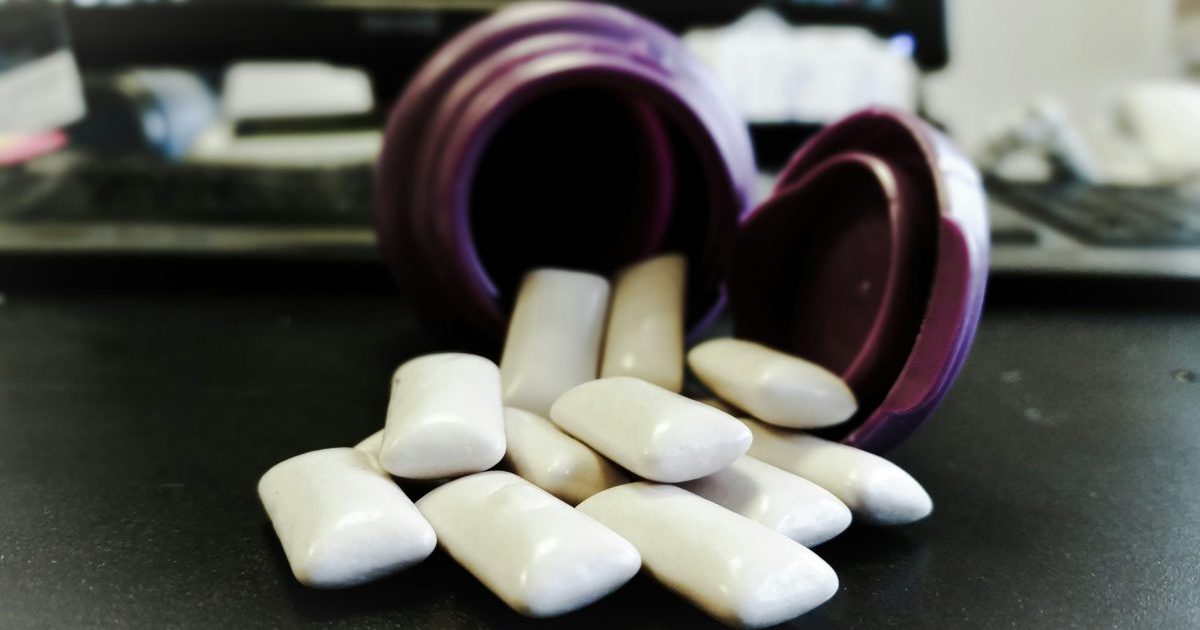
Your mouth muscles that are active during every chew compress salivary glands that help to release extra saliva. Chewing gum can increase this amount of saliva flow by 10 to 12 times, making a packet of Wrigley’s a perfect remedy for a case of dry mouth. Don’t rely on this for extreme cases, but if you’re a bit nervy before a presentation, it should be more than enough.
You could reduce stress
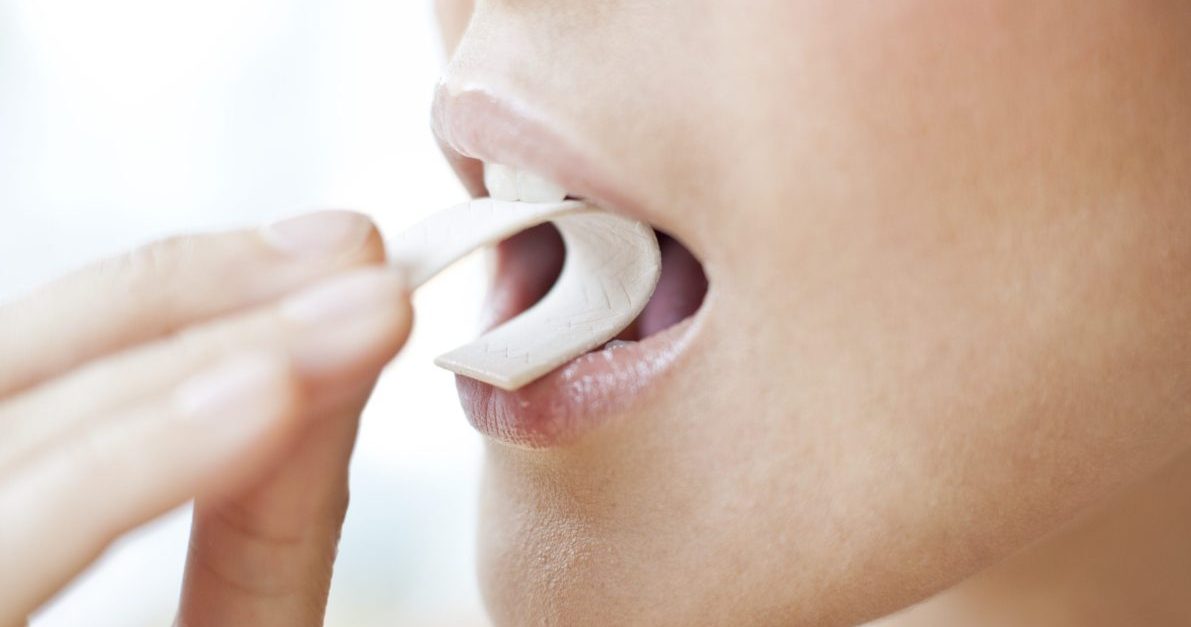
A lot of people who come home stressed from work tend to pour themselves a glass of wine or pop open a cold beer. But what if we told you chewing gum might work better? Eastern Illinois University found that high school students’ stress levels were substantially lowered by chewing gum before their ACTs. Being “hangry” is the thing to note here. When we chew gum, our brains are tricked into thinking we’re being fed, alleviating the stress and anger of hunger.
You could prevent drowsiness

Looking for something to pep you up that isn’t coffee? Look no further than a piece of chewing gum. Studies have shown that people who chewed gum throughout the night to stay awake reported feeling less tired than those who didn’t. Researchers aren’t entirely sure why but it’s believed that chewing gum simply keeps your brain busy and focused. This is a great little secret for those trying to cut down on caffeine.
You might cure ear infections
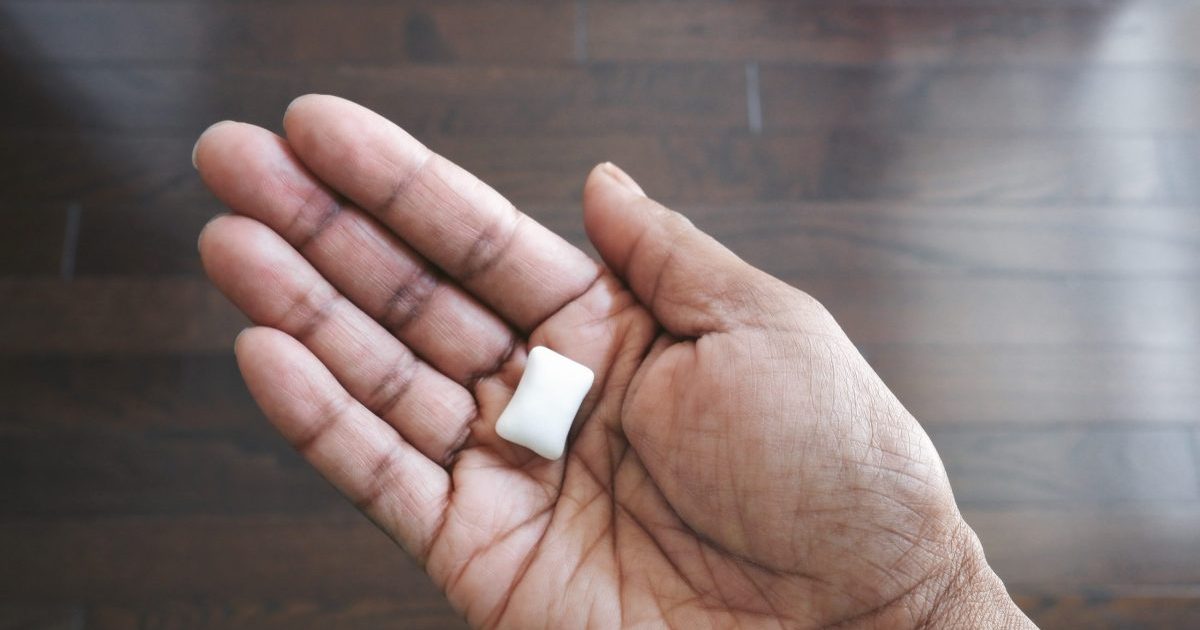
Chewing gum is recommended by a lot of flight attendants to increase comfort while up in the air but it may also help fight off more serious problems like ear infections. The natural sweetener xylitol can prevent bacteria from building up in the tubes that connect the nose and ears, which is how ear infections manifest in the first place.
You could prevent tooth decay
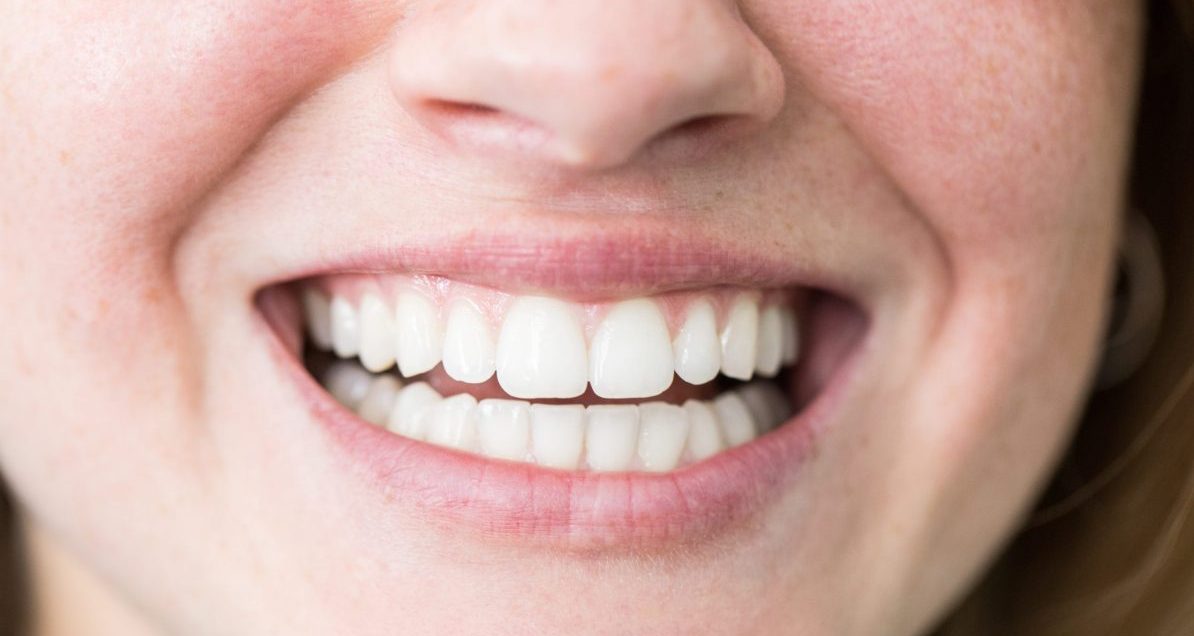
You should never rely on gum alone to keep your teeth healthy, but in those moments between routine tooth brushing, you could do far worse than pop in a stick of chewing gum. It is known to increase saliva which will then wash away acids found in foods that can break down tooth enamel and cause cavities post-meal. Such is the reputation, that certain gum brands have even started to add an ingredient that claims to harden tooth enamel.
Your jaw problems will worsen

The pressure chewing gum puts on your jaw is pretty strong, so to do so every single day will naturally lead to discomfort. What may begin as a popping or clicking noise may evolve into an inability to move one’s jaw altogether, which nobody wants. The American Dental Association even recommends quitting chewing gum completely to avoid any nasty jaw-related pain in the future.
You will have headaches

It’s believed that gum-related headaches are spawned by the pressure gum puts on the joints between the jaw and the skull. A doctor at Meir Medical Center clocked that patients suffering headaches admitted to chewing gum for at least one hour every day. They were advised to quit chewing gum over taking medication. “Twenty of the improved patients later agreed to go back to chewing gum, and all of them reported an immediate relapse of symptoms,” Dr. Nathan Watemberg told Science Daily.
Your memory may improve

Do you have the memory of a fish? You might wanna start chewing gum. One study at St. Lawrence University found that chewing gum before taking a test can help students remember key information and thus improve their overall scores. It’s thought that chewing gum gets the blood pumping, increasing flow to a student’s brain, and making them quick off the mark.
You could give yourself IBS

One of the downsides to chewing gum is that you tend to swallow a lot of excess air while you’re doing it. This can quickly lead to an unpleasant bout of indigestion, or, in extreme cases, trigger long-term irritable bowel syndrome. In people who already have the condition, chewing gum can cause dramatic flareups of symptoms like nausea and cramping.
You could get cavities

As people have become increasingly aware of sugar’s harmful properties, most gum manufacturers have switched to sugar free sweeteners. However, it is still possible to get gum containing the real stuff, and some people don’t bother to check before buying. Sugary gum can lead to rapid growth of the strains of oral bacteria that cause plaque and cavities, dramatically increasing the likelihood of dental problems.
You could mess up your microbiome

Recent research has highlighted how important the gut microbiome is to overall health, with disruptions leading to conditions ranging from depression to inflammatory bowel disease. Unfortunately, the artificial sweeteners in gum have been shown to have a destabilising effect on the populations of beneficial bacteria that colonise intestines, allowing harmful bacteria to flourish in their place.
You could improve your dental health

Xylitol has been used as a natural sweetener since the 60s, but in recent years it’s been getting mainstream attention for its purported benefits, which include improved dental health. There have have even been reports of people reversing cavities by regularly chewing xylitol gum, although to date this hasn’t been replicated in the lab.
You could get mercury poisoning
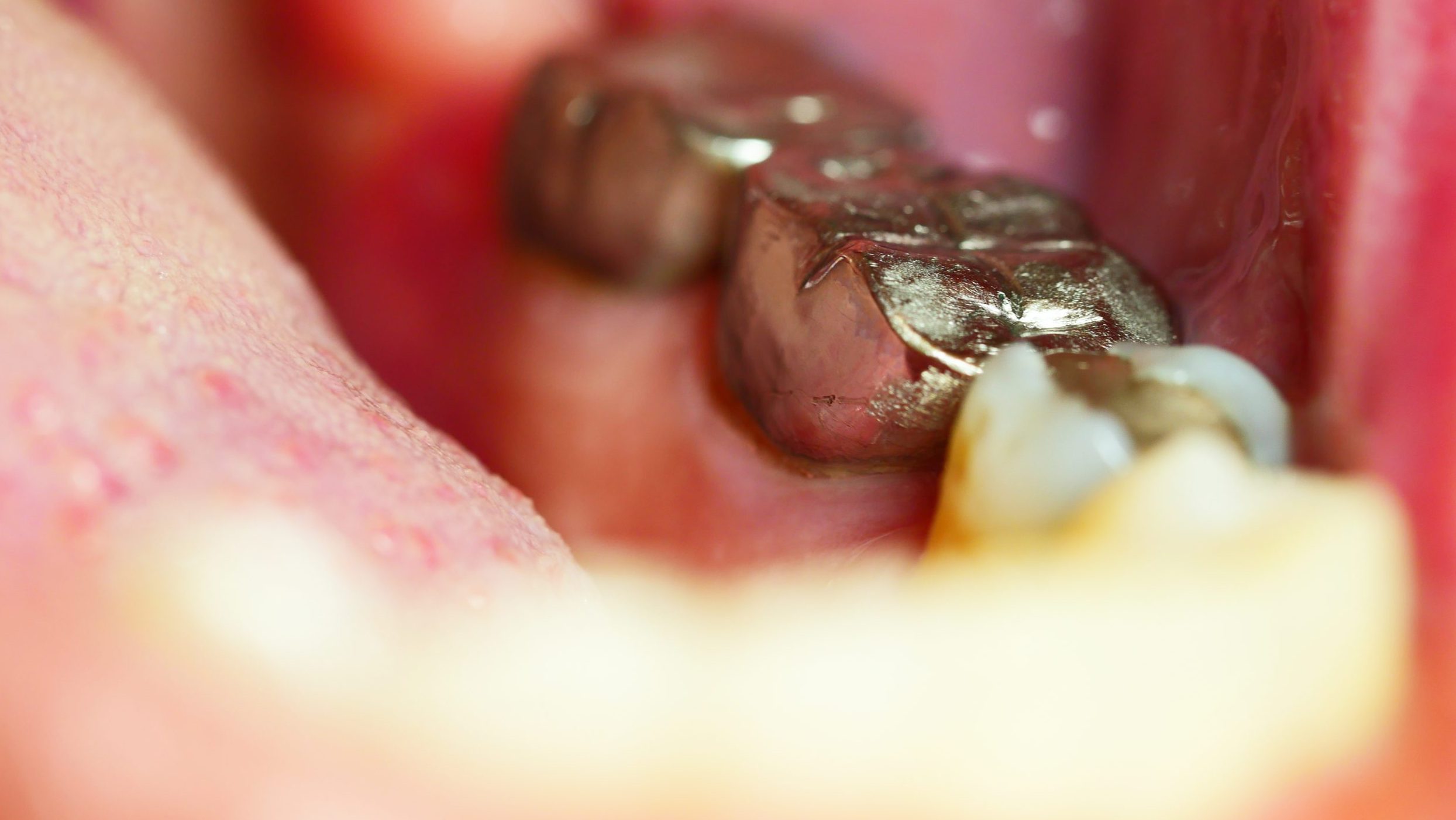
Mercury fillings used to be incredibly popular thanks to their durability and strength, although fortunately dentists have now switched to less toxic materials. While old mercury fillings generally aren’t a health concern, repeatedly chewing gum can cause the metal to leech toxic compounds which are then ingested. Not exactly ideal.
You could give yourself TMJD

Temporomandibular joint disorder (TMJD) is characterised by a misaligned bite, difficulty opening the mouth and pain around the jaw, which can at times be debilitating. The most common cause of TMJD is a traumatic injury to the jaw, but it can also be triggered by excess chewing in those with a predisposition to the disorder.
Your waistline might shrink

A University of Liverpool study found that people who started regularly chewing gum were more likely to lose weight than a control group. Researchers attributed this to the fact that the small hit of sweetness provided by gum reduces sugar cravings, and accordingly helps people refrain from eating more unhealthy treats. It should go without saying, however, that this only applies to sugar free gum.
It’ll keep you alert

According to the National Safety Council, around 100,000 crashes are caused each year in the US by drowsiness, leading to 71,000 injuries and 1,550 deaths. While most people reach for coffee to overcome tiredness, a 2012 study found that chewing mint flavoured gum was an incredibly effective way of remaining alert.
It might help your depression

In 2011, researchers carried out a study to investigate the effects of regularly chewing gum on a range of mental health conditions, including anxiety, depression and chronic fatigue. Astonishingly, they found that participants who chewed gum twice a day for a period of two weeks experienced a modest but noticeable reduction in depressive symptoms.
You’ll burn calories

Before you get excited, you’re never going to be able to get out of going to the gym by chewing more gum. That said, you can still burn up to 50 calories a day by regularly chewing, a non-negligible number that could definitely help you hit your weight loss targets if paired with other healthy habits.
It might improve nausea

Nausea is an extremely unpleasant symptom common to a vast range of conditions, from food poisoning to pregnancy. One of the most effective ways of combatting unpleasant feelings of sickness is to chew gum, with researchers discovering that peppermint and ginger flavours work most effectively.
It could increase your cancer risk

When it comes to gum, it’s safe to say that not all products are created equal. While some contain sweeteners like xylitol which actually carry a number of benefits, others use far more insidious ingredients. Arguably the worst offender is acesulfame-k, a synthetic sweetener linked to a number of conditions, including a variety of cancers.
It could give you stomach problems

Sorbitol, another sweetener commonly found in chewing gum, has been in the spotlight in recent years for its ability to cause a number of unpleasant side effects. Most of these affect the stomach, and include diarrhoea, bloating, severe cramping and nausea. It should be noted, however, that these side effects are unlikely with low to moderate consumption.
It can make flying more bearable

Anyone who’s ever caught a flight is all too familiar with the unpleasant feeling of pressure that affects the ears during takeoff and landing. Chewing forces the Eustachian tubes to keep opening, allowing them to better accommodate the changes in air pressure and alleviating the horrible sensation that your eardrums are about to burst.
It might help you quit smoking

Nicotine gum has long been a favoured aid when it comes to quitting smoking, but regular gum can help too. One of the main challenges smokers face when they try to kick the habit is keeping themselves distracted, and constantly having a piece of gum on the go can certainly help in this department.
It can help your digestion recover after surgery

Abdominal surgery can, unsurprisingly, wreak havoc on your digestive system, and people who are recovering after going under the knife often struggle with constipation and a lack of appetite. A number of studies have looked into whether gum might aid in getting things back to normal, and the general consensus is that it can, with patients who regularly chew recovering faster than those who don’t.
Chewing gum can relieve thirst

It’s often said that by the time you’re thirsty you’re already dehydrated; while this isn’t technically true, you should still reach for a glass of water if you’re parched. That said, sometimes grabbing a drink might not be an option, for whatever reason, in which case you can chew some gum to increase saliva production and temporarily alleviate your thirst.
Your vision might improve

This is definitely an area that needs further research, but a small study involving 46 participants suggested that chewing gum might temporarily improve the eye’s ability to focus. As well as enhancing vision, this can also lessen eyestrain, a condition that commonly affects people who spend all day looking at screens.
It will help with your bad breath

The number one reason that people reach for chewing gum is to cover up bad breath, and there’s good evidence that it works. As well as obscuring unpleasant odours with a powerful minty fragrance, chewing gum also helps dislodge the bits of food that get stuck between teeth. Gum containing xylitol can also reduce the oral bacteria which leads to bad breath.
You might get better at maths

In 2009, a team of researchers at Baylor College of Medicine in Houston published data that showed a small but significant increase in scores when students chewed gum during a maths test. On average, the gum chewing students performed 3% better than the control group, although it should be noted that the study was funded by chewing gum manufacturer Wrigley.
You might eat less fruit and veg

A study published in the journal Eating Behaviours cast doubt on the idea that chewing gum is associated with healthy eating. While researchers did find that chewing gum temporarily curbed appetite, they also discovered that it led to a decrease in the consumption of fruits and vegetables. It was hypothesised that this was a result of the mint flavouring making fruits and vegetables taste bitter.
It can make you hungrier
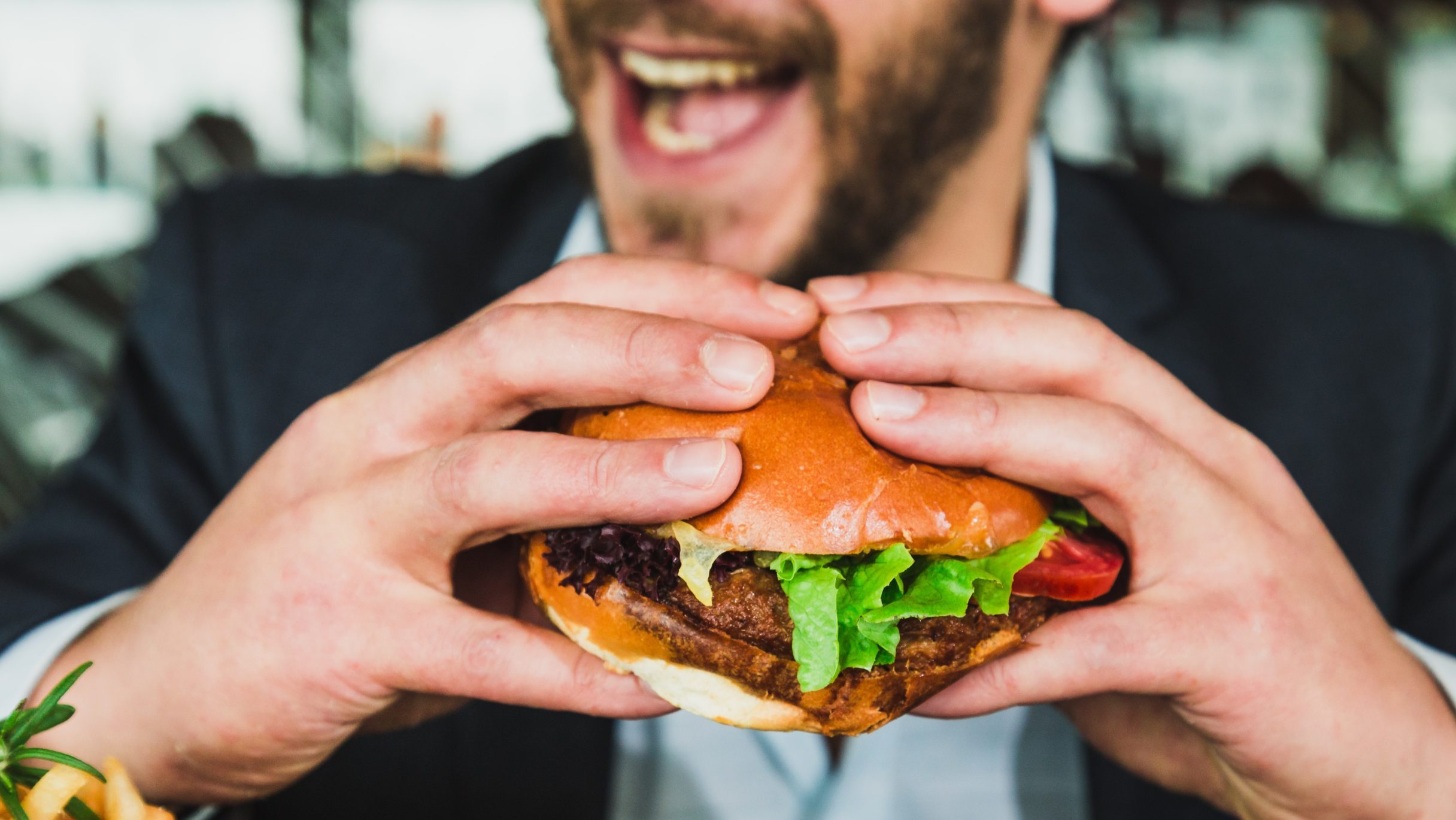
Chewing gum is known as an appetite suppressant, but, while this is true some of the time, it can also go the other way. Sometimes, the act of chewing makes your body think you’re actually eating, causing it to rev up digestive processes. This can make you feel even more hungry, meaning you’ll probably overeat at your next meal.
Your testosterone levels might drop

Testosterone is predominantly thought of as a male hormone, but the truth is it’s incredibly important for both men and women. Recent studies have suggested that mint can cause a significant drop in testosterone, which means mint flavoured gums should probably be avoided by anyone concerned about balancing their hormones or maximising muscle growth.
It might cause brain damage
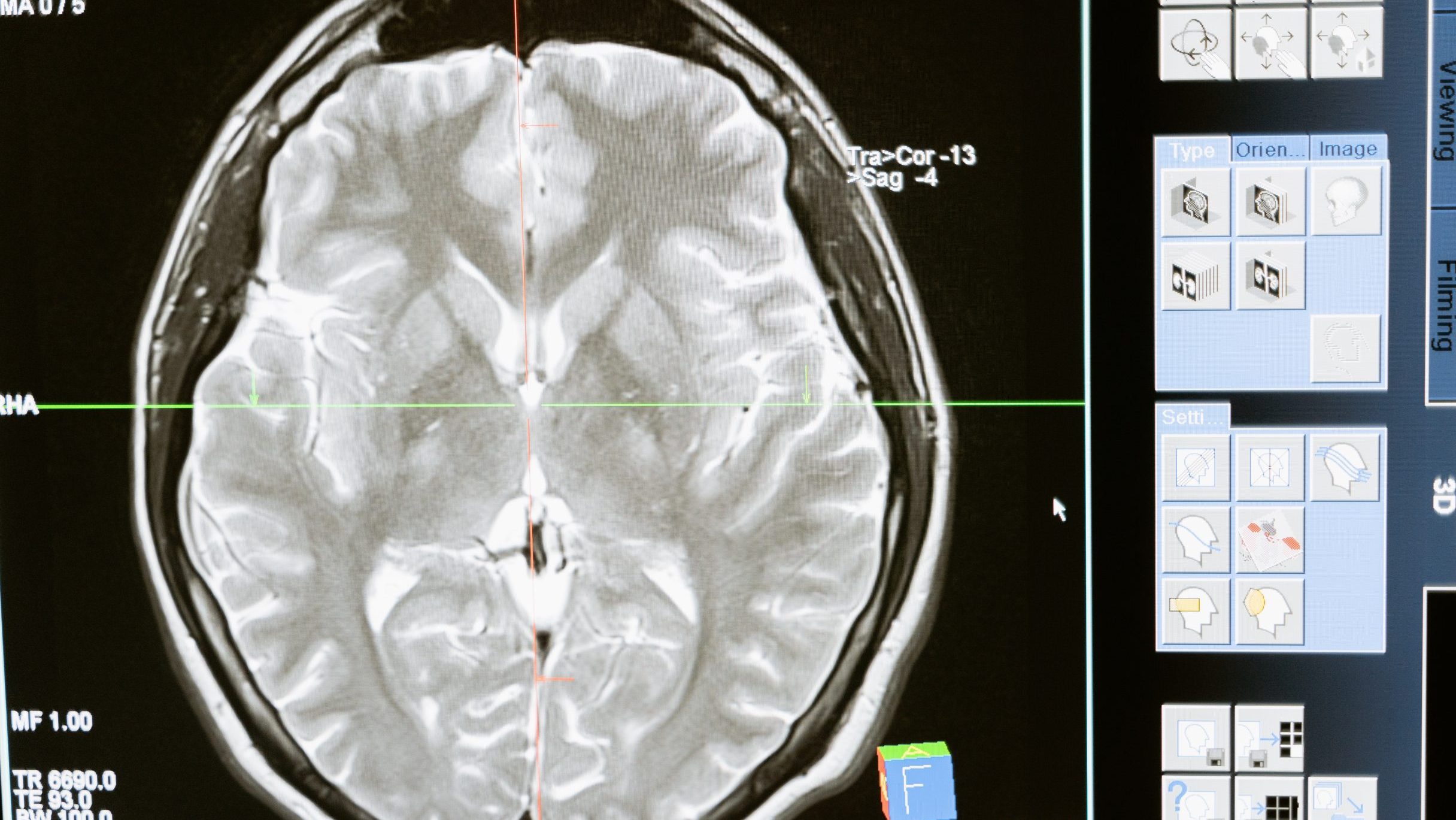
Chewing gum frequently contains an ingredient called titanium dioxide, which helps give gum a smooth texture. Unfortunately, this additive has been linked to a number of concerning conditions, with one paper published in the journal Biomaterials suggesting that it could lead to permanent brain damage. There are manufacturers that avoid this sinister ingredient, but it’s important to check the label.
It could improve your jawline

When you chew gum you predominantly use your masseter muscles, which sit on either side of your jaw just underneath your ears. In theory, these muscles will grow with regular use, giving you a more defined jawline. It should be noted, however, that it would take several hours of chewing every single day for months before there is a noticeable effect.
It could cure constipation

Constipation is an extremely frustrating and painful condition that affects around four million people in the US annually. If you’re suffering from constipation, before you reach for a pharmaceutical solution it might be worth chewing some gum. While it won’t work for everyone, the artificial sweeteners in some gums act as a potent laxative for some people, with xylitol tending to work best.
Your reaction times might improve

In 2013, a team of Japanese researchers tested the reaction times of 17 participants by having them watch a screen and react to visual cues by pressing a trigger. They discovered that, by having test subjects chew gum throughout the test, they could improve reaction times by an average of 7 percent, which equated to around 36 milliseconds.
It could make exercise more effective

A study led by Yuka Hamada found that chewing gum while walking increased heart rate when compared to just walking on its own. The upshot of this is that chewing gum while exercising could lead to enhanced cardiovascular benefits and more calories burned, making it an easy way to boost the efficiency of a workout.
Your circulation might improve

A surprising benefit of chewing gum is an increase in circulation, with the brain in particular receiving up to 40 percent more blood flow. Anything that improves circulation is a helpful ally in the fight against heart disease, the leading cause of death for both men and women in the United States.
It might help brain fog

Brain fog is an insidious but poorly understood condition that often accompanies other psychiatric disorders. Sufferers of brain fog experience confusion and difficulties with thinking clearly, which can severely impact their quality of life. Regularly chewing gum has been shown to positively impact brain fog, positively because it reduces levels of cortisol, a hormone heavily implicated in stress.
It keeps your tongue healthy

When people think about oral health, they tend to neglect the tongue. Fortunately, chewing the right kinds of gum can keep your tongue healthy by preventing the growth of the kinds of harmful bacteria that lead to thrush and other conditions. A word of caution: make sure you avoid gums that contain real sugar, as they will have the opposite effect.